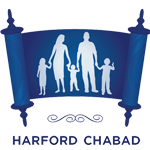Who is holy? Is it the mystic, the monk, or the guru?
So, here's the thing about holiness, it's not what most people think it is.
When it tells us to be holy, the Torah goes on to give examples like charity to the poor, honesty in business, respecting parents and elders, love thy neighbor, etc. Behaviors that seem more mundane and far from “holiness”.
When we examine the Hebrew word for holy - "kadosh" (קָדוֹשׁ), we discover something nuanced. The root word ק-ד-ש, K-D-Sh, isn't just about purity. It essentially means "set apart" or "separated" for divine purpose.
Here's where most religions get it twisted. They teach withdrawal from the world to achieve holiness. The message becomes: separate yourself completely, avoid contamination, preserve your ritual purity at all costs. The holier you are, the less you touch the messy world around you.
Judaism flips this script. We're taught to dive into the world while remaining kadosh - set apart in purpose, not in participation. We engage fully with life around us, while maintaining our divine essence.
This isn't about hiding from the world; it's about transforming it. Take ordinary actions, ordinary moments, and elevate them. Make them G-dly. Your separateness isn't about physical isolation; it's about bringing divine purpose to everything you touch.
Being holy in the Jewish sense means being in the world but not of it; remaining above the fray while actively working to raise it higher.
What normal and holy thing are you going to do this week?
Have a good Shabbos,
Rabbi Kushi Schusterman

